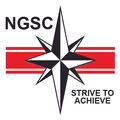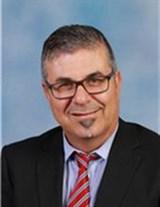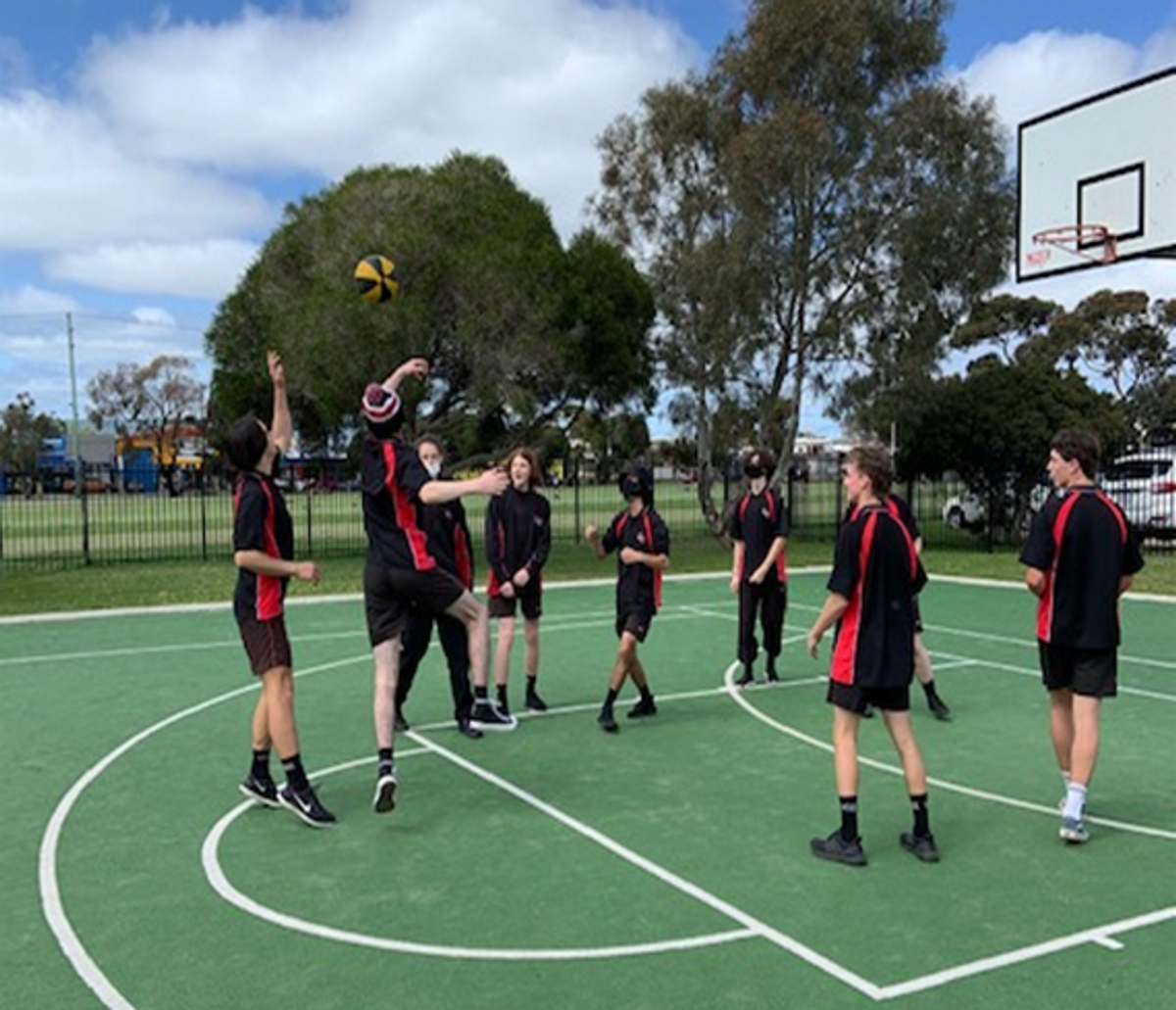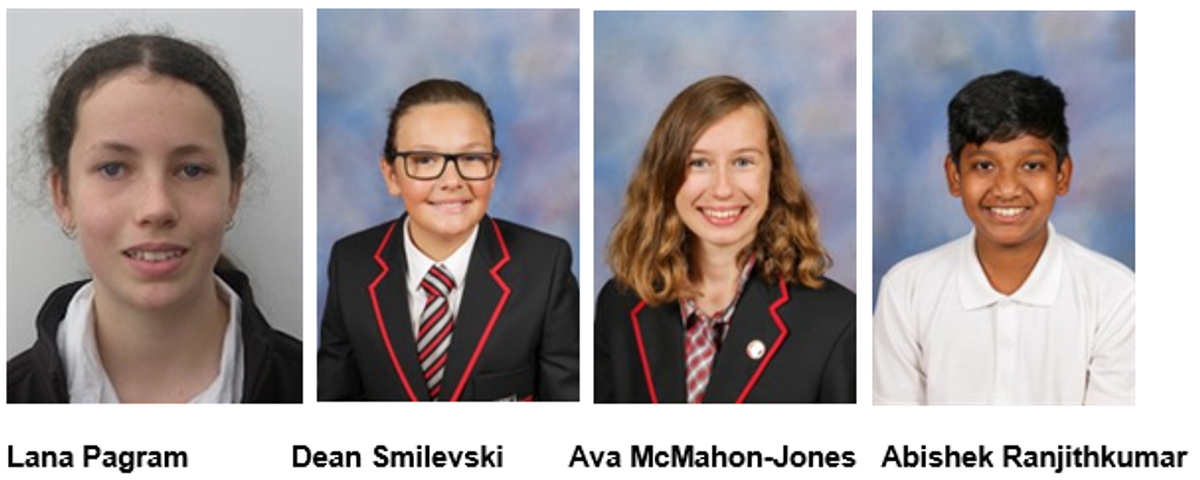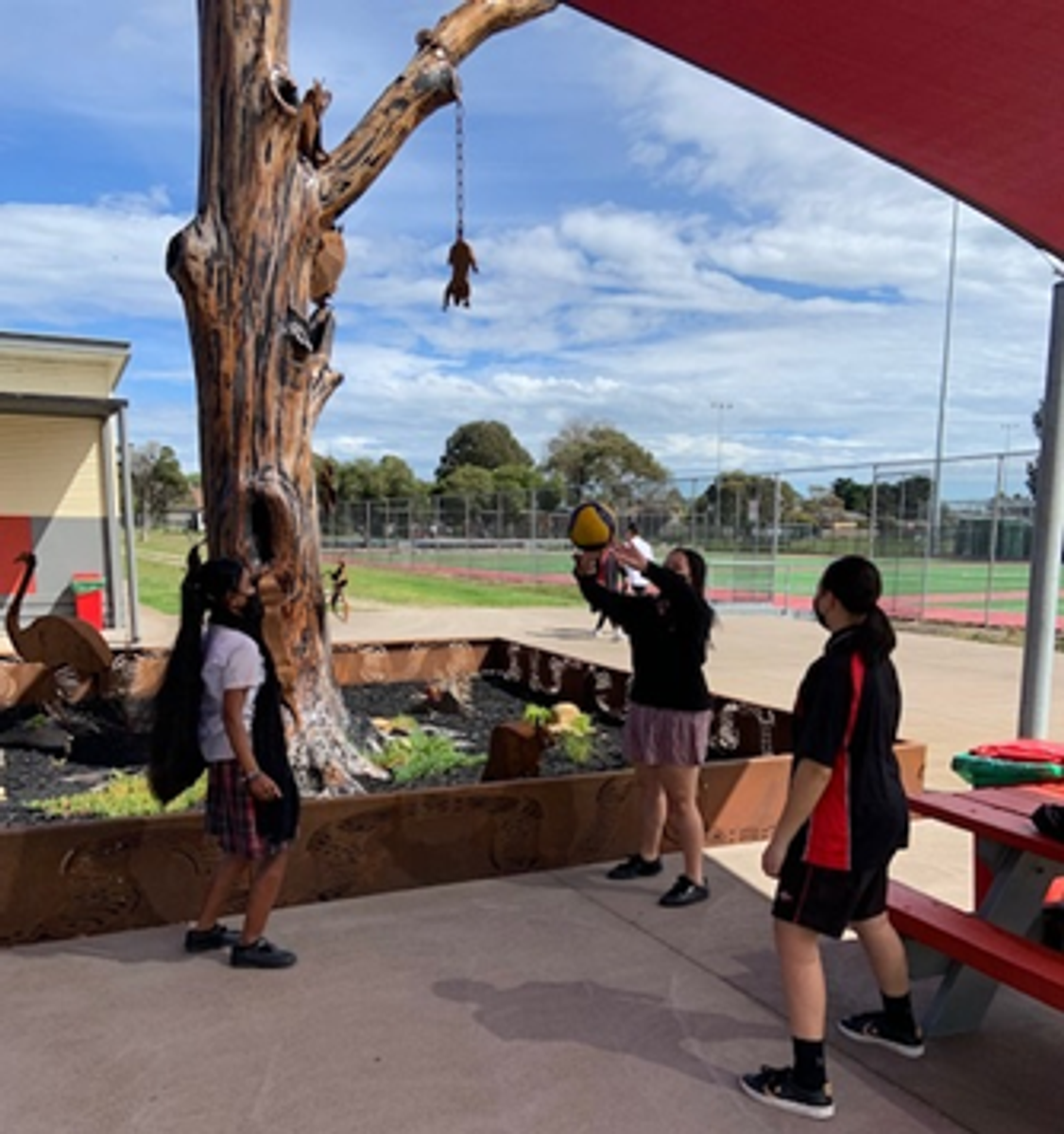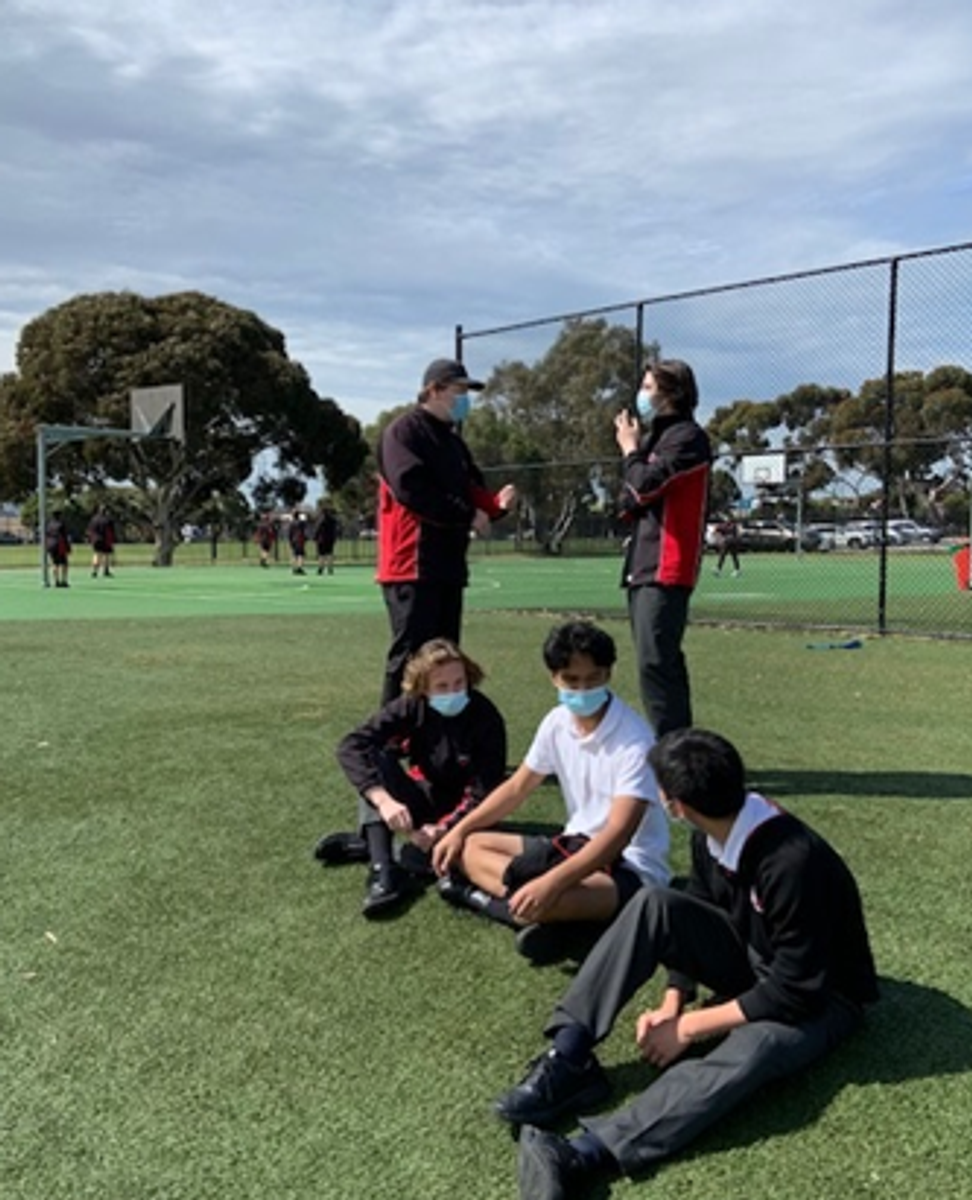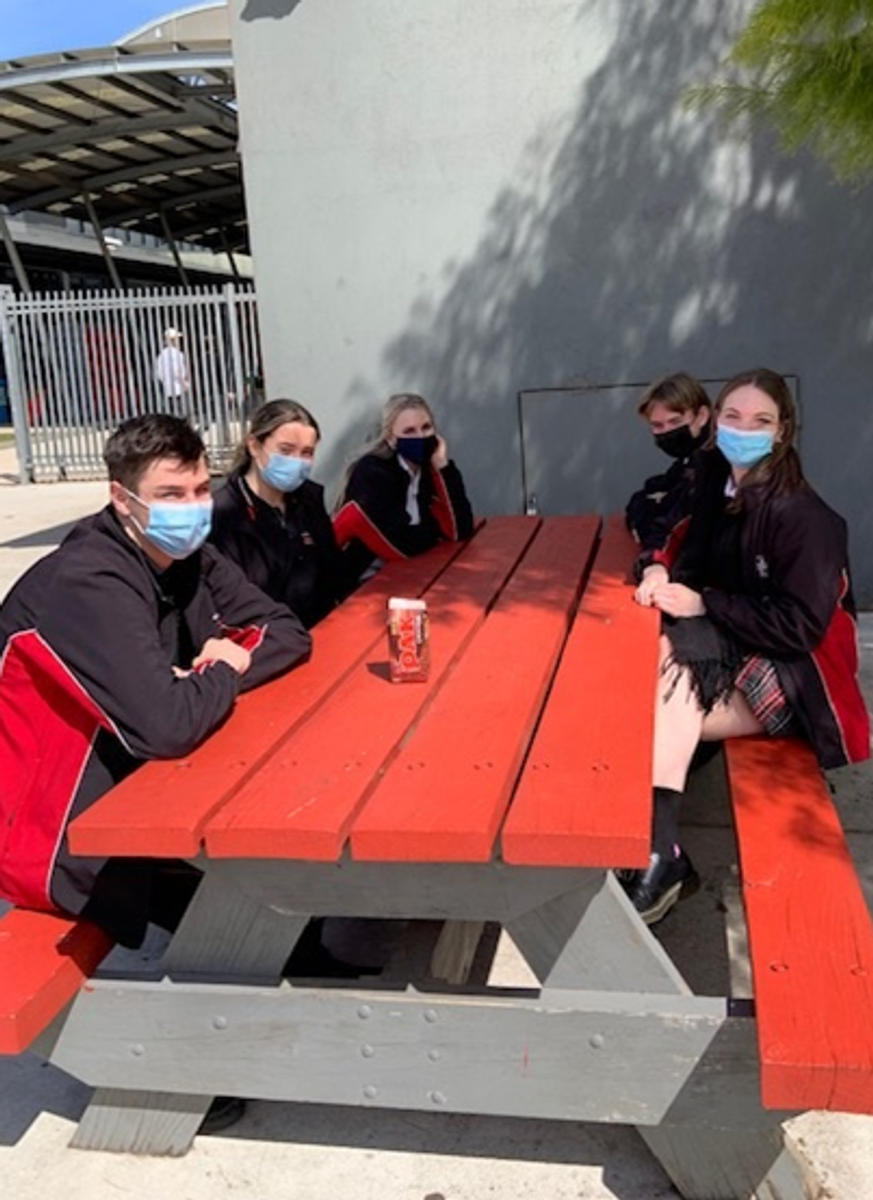PRINCIPAL'S REPORT
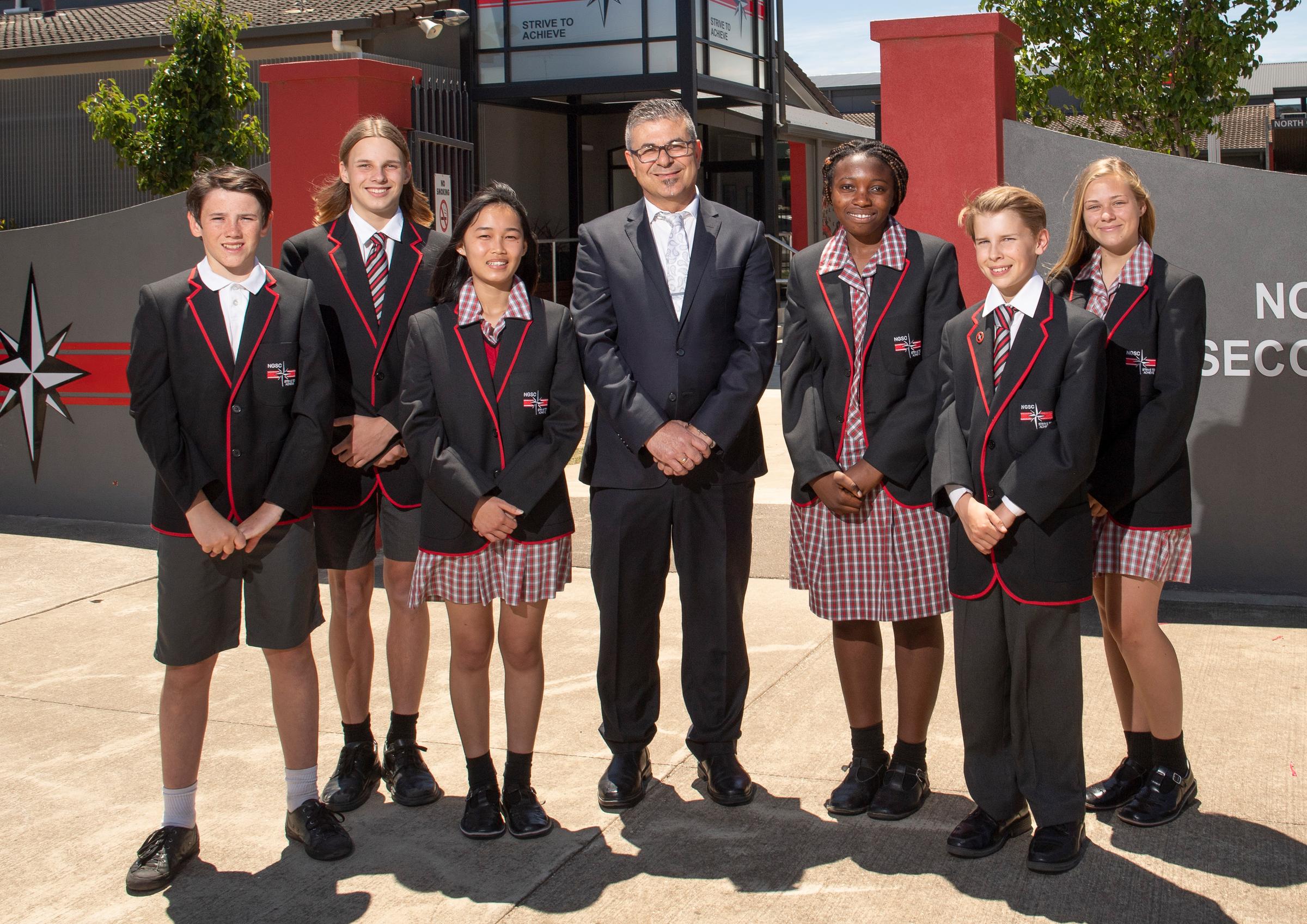
Nicholas Adamou
Principal
2021 Key Dates
| 26 Oct | Year 7 Immunisations |
| 27 Oct to 18 Nov | Year 12 Exam Period |
| 8 Nov | Year 11 Study Day |
| 9 Nov to 12 Nov | Year 11 Exams |
| 15 Nov to 25 Nov | Year 11 into Year 12 Orientation |
| 16 Nov | Graduation Evening |
| 22 Nov to 3 Dec | Year 10 into Year 11 Orientation |
| 26 Nov | Assessment and Reporting Day (Student Free Day) |
| 29 Nov to 3 Dec | Year 7 & 8 Swimming Programs |
| 6 Dec | Last day of Year 7 to 9 classes Grade 6 Parent Information Evening |
| 7 Dec & 8 Dec | Grade 6 into Year 7 Orientation Program |
| 8 & 9 Dec | Year 7 to 9 Activities |
| 10 Dec | Year 7 to 9 Beach Day |
| 14 Dec | Awards Evening |
| 13 Dec & 15 to 17 Dec | Environment Days |
Welcome to Term Four, the final term of this academic year.
Early this week, we were very excited to hear of the new timeline for the staged return to on-site learning, announced by the Victorian Premier.
This has all been made possible thanks to parents, teachers, students and the broader Victorian community stepping up to get vaccinated in great numbers across our community.
The Roadmap is based on advice from the Victorian Chief Health Officer and sets out the staged return to onsite learning in Term 4.
It has been an absolute pleasure to welcome back our students and staff to face-to-face on-site learning in the last couple of weeks and of course today, Friday October 22, is the beginning of the whole school back to onsite learning.
The school was filled with smiling faces of students and staff, happy to see each other and to be in the school environment. I have mentioned this before and I will mention it again, that it has been an extraordinary year, full of challenges, however, we should all be proud of what we have achieved by working together in this outstanding school community. The NGSC community has risen to the challenges faced and holding our values in the forefront of everything we do, we have successfully continued our children’s education and kept the spark for learning well alive during the remote and flexible learning.
On behalf of the NGSC school community, I once again, thank our students, parents, carers and staff for the strength, resilience and understanding demonstrated during these difficult times. These attributes have enabled our school community to continue to learn and develop through the most challenging of times.
It is very exciting for our students to be able to be back with friends and teachers. I’m sure all students are happy to reconnect with their fellow students and teachers.
Term 4 will again be one full of challenges and opportunities and our teachers will strive to deliver high-quality learning for everyone.
This term there will inevitably be some uncertainty, even trepidation, alongside the excitement. Our role as school leaders and staff, in this environment will again be critical in enabling our school community to maintain a clear focus on our purpose, supporting the wellbeing and learning of every student. In some instances, this will mean making every effort to help a young person at risk of disengaging from school to reengage. In others, it will mean celebrating with students who have discovered a new interest, skill or area of knowledge during remote learning. For some, it will mean quiet encouragement as they again learn to navigate the social networks of their peer group. For others, it will mean identifying students who will need more support to catch up on missed learning.
The school will continue to have strong measures in place, aiming at minimising Covid-19 risks and protecting the health and safety of students, staff, families and the community. This includes:
- regular day cleaning/disinfecting of all bathrooms, high traffic surfaces and high traffic spaces
- restricting parent access to school grounds
- all parent/visitors to school will be temperature checked and signed in using the QR code system
- continued emphasis on hand hygiene (soap, hand sanitiser, alcoholic wipes, gloves, Glen 20 will be provided by the school)
- face masks must be worn by all students and staff (A face mask that covers the nose and mouth is now the only permitted type of face covering. Face shields, scarves or bandanas do not meet these requirements)
- physical distancing where possible
Understanding COVID-19
As COVID-19 is a new virus, new scientific research is regularly emerging. Currently, the World Health Organisation suggests that COVID-19 can be transmitted by contact with droplets or airborne aerosols from an infected person, and contaminated surfaces. Airborne aerosols are tiny particles that float in the air. This understanding may change as more research emerges and more is learned about COVID-19.
Droplet transmission
A person can be infected with coronavirus (COVID-19) by touching respiratory droplets such as saliva or tears from an infected person. These are spread through coughing, sneezing, kissing, talking or singing.
These droplets can enter your mouth, nose or eyes and cause infection. This can happen by having close face-to-face contact, being within 1.5 metres of someone with coronavirus (COVID-19), or by touching a contaminated surface before touching your face.
Airborne transmission
Saliva or tears from an infected person can stay in the air after they cough, sneeze, talk or even sing. This means that coronavirus (COVID-19) can be spread through these tiny infectious particles suspended in the air.
Sometimes, the virus can remain in the air for some time in settings such as in indoor spaces with poor ventilation.
Contaminated surfaces transmission
Coronavirus (COVID-19) can spread when secretions or droplets from an infected person land on surfaces. The virus can live on surfaces for hours or days, depending on the temperature, humidity, type of surface, and how much of the virus is present.
If you touch an infected surface, you could become infected by then touching your nose, mouth or eyes. You could also spread the virus from one surface to another and infect other people.
For more information on the science behind COVID-19 see Facts about coronavirus (COVID-19).
A combination of strategies is required to minimise transmission risk. No single strategy completely reduces risk and not every measure will be possible in all educational settings. Where some controls are not feasible, others should be enhanced. Strategies should also be adjusted over time in line with the changing risk of transmission in the community.
The most important action school communities can take to reduce the risk of transmission of coronavirus (COVID-19), is to ensure that any unwell staff and students remain at home, even with the mildest of symptoms.
All students and staff must stay at home when feeling unwell
For further information please see: Managing illness in schools and early childhood services during the coronavirus (COVID-19) pandemic.
North Geelong Secondary College SCHOLARSHIP PROGRAM
“Providing opportunities for excellence”
2022 Year 9 and 10 Scholarship Recipients
Every year, the College allocates 4 Scholarships to the value of $4500.00 for NGSC Year 8 students going into Years 9 and 10. The students are selected based on their written application, multiple references and their ability to articulate their vision on how they could lead the student body and contribute to the life of the school.
Congratulations to the following students who have been successful as the Scholarship recipients for the next two years.
These students will be presented with their Scholarships once the DET Covid19 restrictions are eased.
